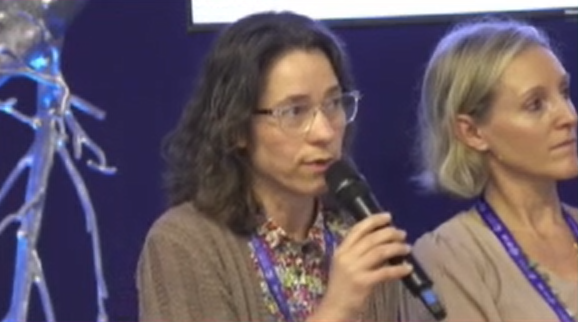WONCA's COP28 Climate Health Collaboration.
 By Paola Rava
By Paola Rava
Our colleague Dr Mayara Floss has been working as a member of the Health and Climate Change Capacity Building Subcommittee as a member of CIMF and of Planetary Health WP of Planetary Health. Early this year, they proposed a side event at the WHO pavilion at COP called: Integrating Health into Climate Change Responses - The Role of Health Professionals, on 9th December and I, Paola, a family doctor from Uruguay, was the representative from WONCA.
This year the COP took place in Dubai from 30 November to 12th December. The aim was to address the question of how health professionals can be a powerful lever to bring a health focus in conversations and climate dialogues in non-health sectors. Referents formed it from India, the US and Latin America, academia mostly. Unlucky other representatives could not attend. It was a challenge to transmit in 3 minutes the point of view from PHC and Family Doctors regarding the relation with other sectors: transport, and food production among others and how we can add approaches to the problem and achieve better results. I also moderated another panel at the WHO pavilion: Health loss and damage in the Latin America and Caribbean region: a multi-sector approach on 11th December.
It represented a great personal experience. We worked with some colleagues from the WP previously to prepare the speech and feel their support, and a sense of “team”. I had the opportunity to contact colleagues and other health professionals who were working on this topic and meet in person with whom I have worked in the Latin America Network on Climate and Health, and attend the plenaries, and side events. There were many expressions of social movements in which we, as family doctors, shared the same target: to care for planetary health.
.png) Credit: WHO
Credit: WHO
The Conference of Parties of UNFCCC aims to achieve agreements among countries to reduce carbon emissions that ensure the global temperature will be less than 1,5º than the industrial period. It may ensure a safe environment for life on Earth and of course people’s health. As many countries, civil organizations worldwide and the IPCC have said since years. The answer for this climate crises is to reduce to zero fossil fuel production and consumption.
Despite the results of the negotiation were not as good as necessary to guarantee we are going to zero-emission, there were some positive aspects to highlight: it was the first Health Day, many minister attendees, and the representative of health professionals increased.
The next COP is going to be in another oil country, but in 2025 will take place in Brazil, so we have an important mission there: to advocate until the era of fossil fuels is behind us, ensuring a healthier, more sustainable future for all.
View the sessions of the
COP28 Health Pavilion HERE